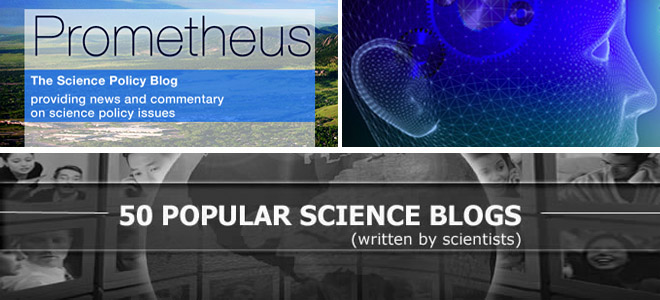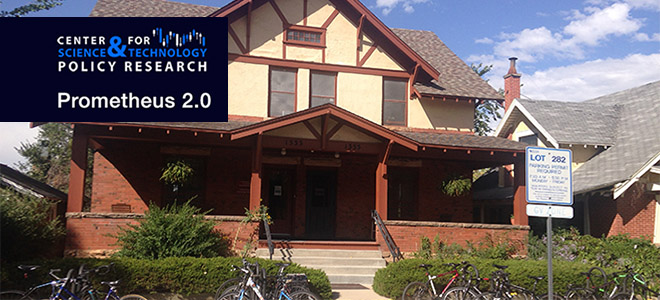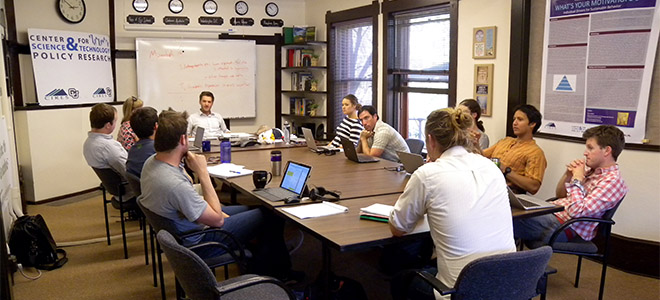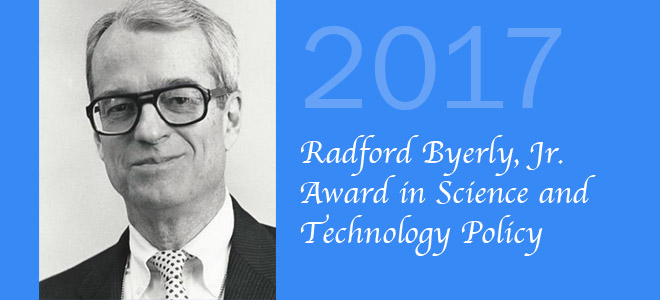Ogmius Exchange |
|
2017 Radford Byerly, Jr. Award in Science and Technology Policy |
|
In 2002, testifying before the Committee on Science in the U.S. House of Representatives in a hearing on ‘New Directions for Climate Research and Technology Initiatives’, Rad Byerly quipped “Politics is not a dirty word. In a democracy it is how we resolve conflicts of values.” This articulate and insightful comment pierced the mood, and illustrated Rad’s keen ability to step up and confront vexing U.S. science-policy challenges. Rad passed away last January after an impressive career that included a postdoctoral fellowship at the Joint Institute for Laboratory Astrophysics (JILA) at CU Boulder, and more than twenty years as staff on and ultimately Director of the Science Committee of the U.S. House of Representatives. Read more ... |
|
Prometheus, Past and Presentby Abigail Ahlert, CSTPR Writing Intern |
|
 |
In 2004, blogging was in its infancy. According to Google Trends, online interest in blogs was at a mere 16% of its eventual peak in 2009. Social networks that help people share their blogs today were years away from popularity. It was at this time that Shep Ryen, a student at the University of Colorado’s Center for Science and Technology Policy Research (CSTPR), created the blog “Prometheus”. Ryen, who now holds a position at the Government Accountability Office (GAO) on the Natural Resources and Environment Team, started Prometheus as a term project for one of his graduate courses in science policy offered by CSTPR. Prometheus was—and is today—designed as an informal outlet for news, information, and opinion on science and technology policy. Read more ... |
Prometheus 2.0 and Our Common Futureby Max Boykoff, CSTPR Director |
|
 |
We here in the Center for Science and Technology Policy Research (CSTPR) recognize that we are in both urgent and opportune times. Science, technology, and policy issues are as pressing, dynamically changing and important as ever. As evidence of this, former White House Office of Science and Technology Policy (OSTP) Director and Science Advisor (1998-2001) Neal Lane recently issued a strong call to the next U.S. President to place ‘laser focus’ on science and technology policy. Read more ... |
How Do Science and Technology Affect Policymaking? How Does Policymaking Affect Science and Technology?by Abigail Ahlert, CSTPR Writing Intern |
|
 |
For the past 12 years, the Graduate Certificate in Science and Technology Policy program has been helping people explore these questions and more. The goal of the program is to prepare graduate students for careers at the interface of science, technology, and decision making. Certificate program students strive to understand the broad societal context of science and technology, as well as gain insight to the methodologies of policy analysis. The program has graduated 27 students and has 27 currently enrolled. Courses that satisfy the program’s 18-credit requirement span environmental science, economics, law and philosophy. Recently, an informal survey of current and former students was conducted to gauge satisfaction with the certificate program. The survey spans the perspectives of students who have participated in the program as early as 2004 and as recently as this year. Read more ... |


